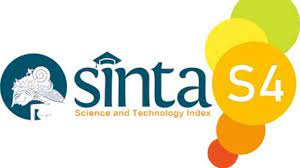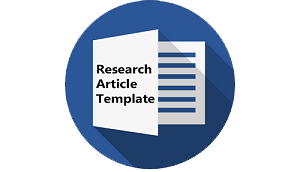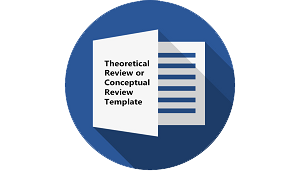Project Based Learning for Developing Learner Autonomy: University Level English Language Courses
DOI:
https://doi.org/10.30957/ijoltl.v7i2.684Keywords:
project based learning (PBL), assessment, alternative assessment, learner autonomy, English as Foreign/Second Language, tertiary level, BangladeshAbstract
Along with the unprecedented advancements made in the sphere of English Language Teaching (henceforth ELT), the practitioners and educators have felt an undeniable demand of redesigning the teaching, learning, and evaluation strategies which have been dominating the teaching and learning process of EFL/ESL classes for the time unknown. Therefore, this field of education now puts its emphasis on enhancing learners' capacity of taking responsibilities of their own learning, which in turn promotes learner autonomy. All these changes contribute, to a large extent, to the promotion of pragmatic knowledge based learning to bring both the teacher and learners out from the erudite stereotypical practice of traditional assessments in the form of tests and examinations; hence, they are now in favor of alternative assessment that supports the notion of formative assessment. One of the most recognized tools of such assessment is Project Based Learning (PBL for now onwards), and it is not only a reflective praxis of alternative assessment but also is considered as a major learning tool for practical knowledge. It creates a scope for learners to learn from their peripheral surroundings by which they get influenced by in their everyday life, such as their social, political, communal, and familial settings.
Therefore, this paper explores the possibilities as well as challenges of implementing PBL as a learning and an assessment instrument in English language classrooms at the tertiary level education in Bangladesh.
Downloads
References
Affandi, A. & Sukyadi, D. (2016). Project-Based Learning and Problem-Based Learning for EFL Students’ Writing Achievement at the Tertiary Level. Rangsit Journal of Educational Studies, 3 (1), 23-40. DOI: 10.14456/rjes.2016.2
Al Amin, M., Greenwood, J. The Examination System in Bangladesh and its Impact: on Curriculum, Students, Teachers and Society. Language Testing in Asia 8, 4 (2018). https://doi.org/10.1186/s40468-018-0060-9 DOI: https://doi.org/10.1186/s40468-018-0060-9
Astawa, N. L. P. N. S. P., Artini, L. P. & Nitiashi, P. K. (2017). Project-based Learning Activities and EFL Students’ Productive Skills in English. Journal of Language Teaching and Research, 8 (6), 1147-1155. DOI: http://dx.doi.org/10.17507/jltr.0806.16 DOI: https://doi.org/10.17507/jltr.0806.16
Dang, T.T. (2010). Learner Autonomy in EFL Studies in Vietnam: A Discussion from Sociocultural Perspective. English Language Teaching, 3 (2), 3-9. Retrieved from https://www.researchgate.net/publication/43941698_Learner_Autonomy_ DOI: https://doi.org/10.5539/elt.v3n2p3
in_EFL_Studies_in_Vietnam_A_Discussion_from_Sociocultural_Perspective
Dikli, S. (2003). Assessment at a Distance: Traditional vs. Alternative Assessments. The
Turkish Online Journal of Educational Technology, 2(3), 13-19. Retrieved from
www.tojet.net/articles/v2i3/232.pdf
Guven, Z.Z. & Valais, T. H. (2014). Project Based Learning: A Constructive Way Toward Learner Autonomy. International Journal of Languages’ Education and Teaching. Turkey: Necmettin Erbakan University Department of Linguistics
Kizkapan, O. & Bektas. O. (2017). The Effect of Project Based Learning on Seventh Grade Students’ Academic Achievement. International Journal of Instruction, 10(1), 37-54. DOI: 10.12973/iji.2017.1013a DOI: https://doi.org/10.12973/iji.2017.1013a
Kumaravadivelu, B. (1994). The postmethod condition: Emerging strategies for second/foreign language teaching. TESOL Quarterly, 28, 27-48. DOI: 10.2307/3587197 DOI: https://doi.org/10.2307/3587197
Monib, W. K., Karimi, A.Q. & Nijat, N. (2020). Effects of Alternative Assessment in EFL Classroom: A Systematic Review. American International Journal of Education and Linguistics Research, 3 (2), 7-18. Retrieved from https://www.researchgate.net/publication/340078281_Effects_of_Alternative DOI: https://doi.org/10.46545/aijelr.v3i2.152
_Assessment_in_EFL_Classroom_A_Systematic_Review
Nasab, F. G. (2015). Alternative versus Traditional Assessment. Journal of Applied Linguistics and Language Research, 2(6), 165-178. Retrieved from http://www.jallr.com/index.php/JALLR/article/viewFile/136/pdf136
Roessingh, H. & Chambers, W. (2011). Project-Based Learning and Pedagogy in Teacher Preparation: Staking Out the Theoretical Mid-Ground. International Journal of Teaching and Learning in Higher Education, 23 (1), 60-71. Retrieved from http://www.isetl.org/ijtlhe/
Sanders, L.R. (2001). Improving Assessment in University Classrooms. College Teaching, 49 (2), 62-64. Retrieved from http://www.jstor.org/stable/27559036 DOI: https://doi.org/10.1080/87567550109595849
Simonson M., Smaldino, S, Albright, M. and Zvacek, S. (2000). Assessment for distance education. Teaching and Learning at a Distance: Foundations of Distance Education. Upper Saddle River, NJ: Prentice-Hall.
Yuliani, Y. & Lengkanawati, N. S. (2017). Project-based Learning in Promoting Learner Autonomy in an EFL Classroom. Indonesian Journal of Applied Linguistics, 7 (2), 285-293. doi: dx.doi.org/10.17509/ijal.v7i2.8131 DOI: https://doi.org/10.17509/ijal.v7i2.8131
Zedda, M., Bernardelli, S. & Maran., D. A. (2017). Students’ Satisfaction with the Group Work Method and its Performance Evaluation: A survey in an Italian University. International Journal of Instruction, 10 (3), 1-14. https://doi.org/10.12973/iji.2017.10 DOI: https://doi.org/10.12973/iji.2017.1031a
Downloads
Published
How to Cite
Issue
Section
License
Authors who publish with this journal agree to the following terms:
- Authors retain copyright and grant the journal right of first publication with the work simultaneously licensed under a Creative Commons Attribution-ShareAlike 4.0 International License that allows others to share the work with an acknowledgement of the work's authorship and initial publication in this journal.
- Authors are able to enter into separate, additional contractual arrangements for the non-exclusive distribution of the journal's published version of the work (e.g., post it to an institutional repository or publish it in a book), with an acknowledgement of its initial publication in this journal.
- Authors are permitted and encouraged to post their work online (e.g., in institutional repositories or on their website) prior to and during the submission process, as it can lead to productive exchanges, as well as earlier and greater citation of published work (See The Effect of Open Access).












